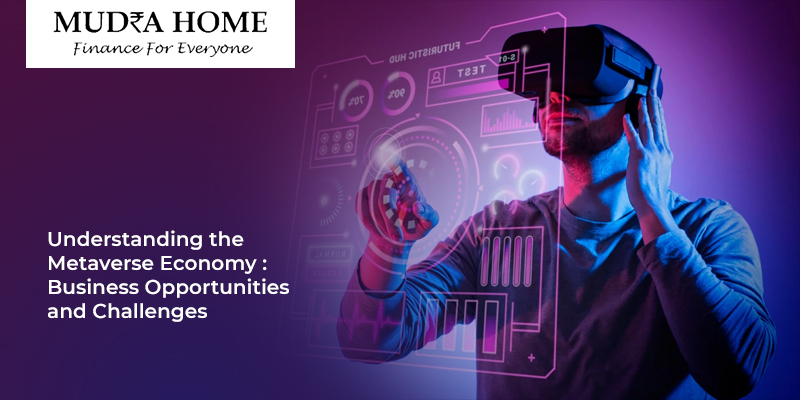
The concept of the metaverse, a collective virtual shared space, has rapidly evolved from science fiction to a tangible reality. With the convergence of augmented reality (AR), virtual reality (VR), blockchain technology, and artificial intelligence (AI), the metaverse presents a new frontier for businesses, offering unprecedented opportunities alongside unique challenges.
At its core, the metaverse economy revolves around digital assets, virtual goods, and immersive experiences. From virtual real estate to digital fashion, the possibilities are vast and diverse. One of the most prominent opportunities lies in virtual commerce, where businesses can create and sell digital products and services to a global audience. Virtual events, conferences, and entertainment experiences also represent lucrative avenues for monetization within the metaverse.
Moreover, the metaverse fosters a borderless economy, enabling businesses to transcend geographical limitations and reach consumers worldwide. This opens up new markets and revenue streams for companies of all sizes. For startups and entrepreneurs, the metaverse provides a level playing field, allowing innovative ideas to thrive without the need for extensive physical infrastructure.
Blockchain technology plays a crucial role in the metaverse economy, providing security, transparency, and authenticity to digital assets. Non-fungible tokens (NFTs), which are unique digital assets stored on the blockchain, have gained significant traction within the metaverse. From digital art to virtual real estate, NFTs enable ownership and provenance in the digital realm, creating valuable opportunities for creators and collectors alike.
However, alongside these opportunities, businesses operating in the metaverse face several challenges. One of the primary concerns is ensuring data privacy and security in virtual environments. With the proliferation of immersive technologies, safeguarding sensitive information and preventing unauthorized access become paramount for businesses and users alike.
Another challenge is establishing trust and credibility in the metaverse economy. As virtual interactions become increasingly common, building and maintaining trust between businesses and consumers becomes more complex. Issues such as fraud, counterfeit goods, and virtual identity theft pose significant risks to the integrity of the metaverse ecosystem.
Additionally, regulatory uncertainty looms over the metaverse, with policymakers grappling to adapt existing laws and regulations to the digital realm. Questions surrounding taxation, intellectual property rights, and consumer protection in virtual environments remain largely unanswered, creating ambiguity for businesses navigating the metaverse landscape.
Despite these challenges, the potential of the metaverse economy is undeniable. As technology continues to advance and user adoption grows, businesses that embrace the metaverse stand to gain a competitive edge in the digital economy. By leveraging immersive experiences, digital assets, and blockchain technology, companies can unlock new revenue streams, enhance customer engagement, and redefine the future of commerce.
In conclusion, the metaverse economy presents both immense opportunities and formidable challenges for businesses. From virtual commerce to blockchain-powered experiences, the possibilities are limitless. However, navigating issues such as data privacy, trust, and regulation will be critical for businesses looking to capitalize on the transformative potential of the metaverse. As the metaverse continues to evolve, companies that innovate and adapt to this new paradigm will thrive in the digital landscape of tomorrow.